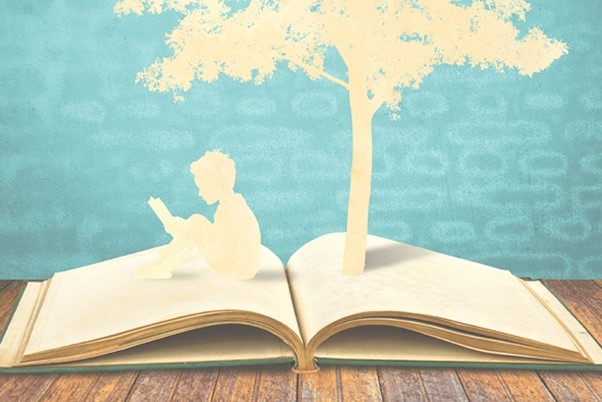School is in startup mode, and students are being asked to turn on their brainwork to high volume. But it’s not just students who can benefit from deeper thinking. Therapists ask those who seek help to stop and reflect on meaning. Some therapists integrate what we call bibliotherapy, a form of therapy that integrates reading into sessions. Great poetry and literature can prompt us to think deeply about our own individual lives.

“Tell me what you plan to do with your wild and precious life?”
And this simple question stops me in my tracks every single time I read it. The simple question is not so simple. This question jars me into thinking whether or not I’m really living fully on this path of life I have before me. I can get bogged down with all there is to do, and days pass by so swiftly. And I can fall asleep in life and think that I don’t have time to do the things that matter most to me.
We are constantly evolving. We do have the ability to pause and think about what needs to go and what needs to stay in our lives. But days can pass by automaton, just getting it done, just surviving life, rather than thriving in life. How do I edit my life to be able to feel good about how I am living?
The poet calls life “wild” and “precious.” With the word “wild,” I think of our ability to be creative and to do things we long to do, rather than go out and about half asleep every day. The word “precious” is not so simple. We use the word quite a lot when we talk about babies being “precious.” And they are. But life is oh so precious, too, and it passes by so swiftly.
How am I to live? What am I doing that makes my life invigorating? The poet calls it this “one” “life,” suggesting that one day it will come to a close and this is the only one life, at least on this earth, that I may have.
Mary Oliver’s poetry is often so simple but so powerful. We don’t really go around asking people what their purpose is, what they want to do that they haven’t done, or what is missing in their lives. Well, actually, therapy sessions may very well bring up these kinds of significant existential questions. What do I want to be able to say at the end about my life? Did I do the things most important? Did I do the things that make me proud of my life?

Here’s a challenge.
Read the following famous quote several times.
“Today, like every other day, we wake up empty and frightened.
Don’t open the door to the study ad begin reading. Take down the dulcimer.
Let the beauty we love be what we do. There are hundreds of ways to kiss the ground.” – Rumi
Read it yet again. Spend some time in reflection. Journal about the poem and what it means to you.
Then it would be so nice for some of you to share with me (jana.wessonmartin@inmindout.com) about what the quote means to you in your own life. Although we’re back to school days, I will not ask you to write an essay. But a paragraph or two would be nice. And, only with your permission, I’d like to publish some of your responses on our blog site – anonymously, of course.
So you’ve just delved into bibliotherapy, reading a great piece of literature, thinking deeply about what it means to your life and what it means in the overall scheme of things.

